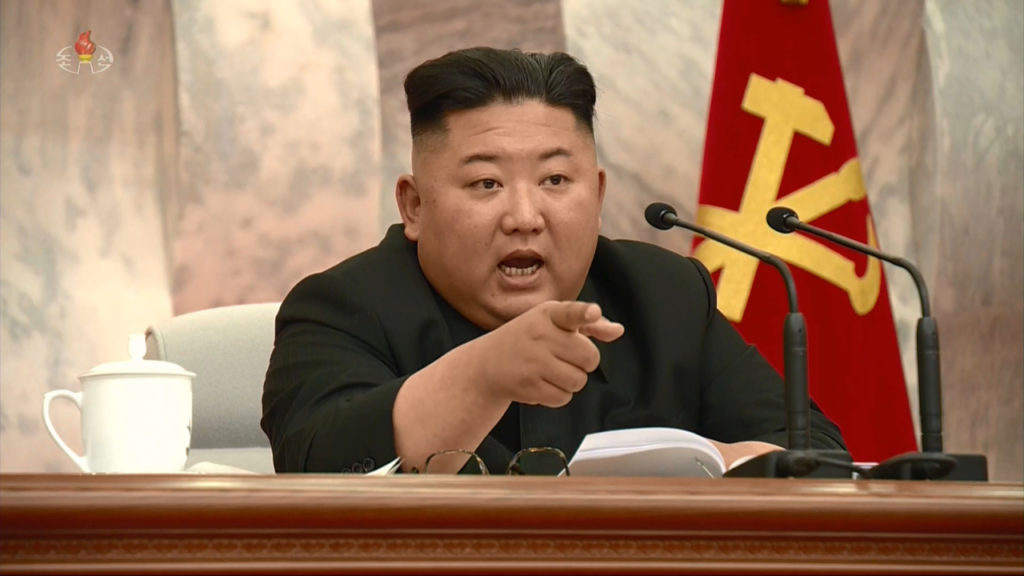N. Korea continues to up tensions, Seoul says will honor agreements

North Korean leader Kim Jong-un (KCNA-Yonhap) via The Korea Herald
SEOUL — South Korea on Sunday vowed to honor reconciliatory agreements reached between the two Koreas and called on the North to do so, while reiterating a staunch military readiness against any potential provocation by the North.
Seoul’s top security advisers, led by Chung Eui-yong, chief of the National Security Office, reviewed the recent flare-up in tensions on the peninsula, following the North’s threats to sever ties with the South and even use military force.
“National Security Council members met together to assess the latest situation unfolding in the peninsula and to choose steps accordingly,” Cheong Wa Dae spokesman Kang Min-seok said Sunday.
Seoul’s Unification and Defense ministries separately released statements saying they were taking the situation seriously and that Seoul and Pyongyang should hold up inter-Korean agreements, with the Defense Ministry ensuring the military’s combat readiness.
The flurry of actions came after the North on late Saturday further ratchetted up tensions over anti-Pyongyang leaflet launches defectors organized in Seoul, warning of military action.
The US State Department, when asked by Yonhap News Agency for a reaction on Pyongyang’s threat of aggression, said it was “disappointed,” urging the community regime to avoid provocation and return to the nuclear talks.
Local experts said the North will likely proceed to shut down the liaison office and attempt to nullify the 2018 inter-Korean military accord with fresh military provocations.
“The provocation would most likely involve artillery rounds near a disputed maritime border with Seoul in the West Sea,” said Shin Beom-chul, director of the Center for Diplomacy and Security at the Korea Research Institute for National Strategy.
The North, however, will not go as far as launching a direct confrontation with the South because that would call for an action-for-action response, which Pyongyang knows works to its disadvantage, Shin added.
Staging such aggression there repeatedly would open a way to nullify the military pact the Koreas reached in 2018, according to Choi Kang, vice president of the Asan Institute for Policy Studies.
Both Shin and Choi agreed Pyongyang could test-fire short-range missiles at any time, but said missiles largely serve to draw Washington’s attention and not Seoul’s.
“North Korea has already made it public it would confront the US this year, so test-firing an intercontinental ballistic missile or submarine-launched ballistic missile is not off the table,” Shin said.
But those missiles would see the light of the day at least after August, when Seoul and Washington hold joint drills, or October when the North celebrates the anniversary of the Workers’ Party.
“A successful SLBM hinges on a submarine capable of launching the missile, and given no sign Pyongyang has rolled out the ship. … September would be as early as it gets if the North had to show off the missile,” Choi said.
Days earlier South Korea said it would take legal action against the defector-led civic groups that launched anti-Pyongyang leaflets. Seoul said it would disband the group, which it claimed was in violation of a string of local laws.
The North responded by saying the South has to pay the price for the “trash” delivered there.
Disclaimer: The comments uploaded on this site do not necessarily represent or reflect the views of management and owner of Cebudailynews. We reserve the right to exclude comments that we deem to be inconsistent with our editorial standards.
